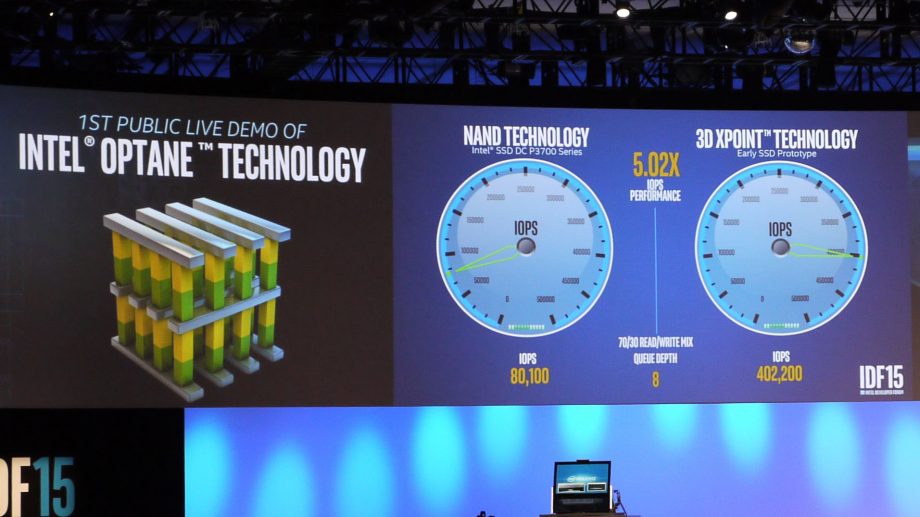Intel announces Optane brand for new superfast 3D Xpoint storage

Intel has announced further details of its exciting new 3D Xpoint storage technology, showing it in action and revealing the superfast replacement for SSDs will be branded Intel Optane.
The new name will cover both the new storage devices, as well as the new controllers, interfaces, and software IP that support it.
The new storage technology is set to potentially replace both SSDs and system memory, thanks to it being nearly as fast as the latter while also being non-volatile like the former.
Based on a completely new type of memory, it uses a multi-layered cross-cross of metal wires that are joined by pillars of an as yet undisclosed material that is used to store each bit of data.
Crucially, unlike traditional DRAM and NAND, it doesn’t rely on the storage of electrons but rather data is retained by changing the state of the pillars of material. This means it’s not only incredibly fast but data can be stored for a great length of time.
intel claims it will be up to 1000x faster than NAND memory used in SSDs, will last 1000x longer and is 10x denser than DRAM.
Rob Crooke, Intel SVP and GM for non-volatile memory solutions, demonstrated the new technology using a prototype version of 3D Xpoint, showing it to be between five and seven times faster than Intel’s current fastest SSD, the intel 750 SSD.
That drive is already several times faster than most existing SATA SSDs, making the Xpoint memory around 30x faster than a typical consumer SSD, though for final products Intel is predicting it will be much faster still.
For instance, in one test the 3D Xpoint tech delivered 402,000 iOPs while the 750 Series delivered just 80,100.
Intel also revealed the new technology will be arriving in both typical SSD form factors, where it can act as a direct replacement for existing storage, as well as in DIMM form where it replaces system memory, though the latter will be aimed at specialist data centre use for the time being.
The exact release date for these products hasn’t been announced but Intel again confirmed they will be arriving in 2016.

